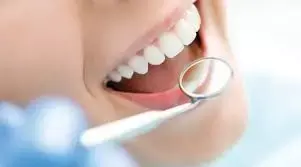- Home
- Medical news & Guidelines
- Anesthesiology
- Cardiology and CTVS
- Critical Care
- Dentistry
- Dermatology
- Diabetes and Endocrinology
- ENT
- Gastroenterology
- Medicine
- Nephrology
- Neurology
- Obstretics-Gynaecology
- Oncology
- Ophthalmology
- Orthopaedics
- Pediatrics-Neonatology
- Psychiatry
- Pulmonology
- Radiology
- Surgery
- Urology
- Laboratory Medicine
- Diet
- Nursing
- Paramedical
- Physiotherapy
- Health news
- Fact Check
- Bone Health Fact Check
- Brain Health Fact Check
- Cancer Related Fact Check
- Child Care Fact Check
- Dental and oral health fact check
- Diabetes and metabolic health fact check
- Diet and Nutrition Fact Check
- Eye and ENT Care Fact Check
- Fitness fact check
- Gut health fact check
- Heart health fact check
- Kidney health fact check
- Medical education fact check
- Men's health fact check
- Respiratory fact check
- Skin and hair care fact check
- Vaccine and Immunization fact check
- Women's health fact check
- AYUSH
- State News
- Andaman and Nicobar Islands
- Andhra Pradesh
- Arunachal Pradesh
- Assam
- Bihar
- Chandigarh
- Chattisgarh
- Dadra and Nagar Haveli
- Daman and Diu
- Delhi
- Goa
- Gujarat
- Haryana
- Himachal Pradesh
- Jammu & Kashmir
- Jharkhand
- Karnataka
- Kerala
- Ladakh
- Lakshadweep
- Madhya Pradesh
- Maharashtra
- Manipur
- Meghalaya
- Mizoram
- Nagaland
- Odisha
- Puducherry
- Punjab
- Rajasthan
- Sikkim
- Tamil Nadu
- Telangana
- Tripura
- Uttar Pradesh
- Uttrakhand
- West Bengal
- Medical Education
- Industry
Probiotics may improve oral hygiene and reduce oral microbial load and optimize denture care: Study

Probiotics may improve oral hygiene and reduce oral microbial load and optimize denture care suggests a study published in the Journal of Prosthetic Dentistry.
The accumulation of microorganisms on complete dentures has adverse effects on general health. Precautions should be taken to prevent colonization by these harmful pathogens, but whether an intake of probiotics effectively reduces microbiota is unclear. This clinical study aimed to examine the effectiveness of probiotics against the microbial colonization of dentures and the oral regions.Sixty-one edentulous participants with dentures were recruited, and samples were collected from the palate, cheek, tongue, and denture surface using sterile erasers before and after applying probiotics containing Lactobacillus acidophilus, Lactobacillus rhamnosus, Lactobacillus casei, and Bifidobacterium bifidum.
The count of bacterial species in the original culture was calculated by multiplying the number of colonies by the dilution factor of cells per mL [log10 (CFU/mL)] for different media. Spread plating was used to colonize in vitro. A Wilcoxon test was used to compare the groups according to time reveal. Kruskal–Wallis and Mann–Whitney U tests were performed to compare the values in the various regions studied (α=.05).
Results: A statistical difference in microbial count was found before and after probiotic intake (P<.05). For each medium, the microbial count values were statistically lower on the tongue, palate, dentures, and cheek after probiotic intake (P<.05), except for in malt medium on dentures (P>.05). Probiotics reduced the microbial count in the oral region and showed promising results for oral health and denture hygiene. Since the oral microbiota has among the highest levels of species diversity in the human body, further studies are needed.
Reference:
Evirgen Ş, Kahraman EN, Korcan SE, Yıldırım B, Şimşek AT, Aydın B, Ünal M. Intake of probiotics as an option for reducing oral and prosthetic microbiota: A clinical study. J Prosthet Dent. 2024 Aug 21:S0022-3913(24)00470-0. doi: 10.1016/j.prosdent.2024.07.008. Epub ahead of print. PMID: 39174381.
Dr. Shravani Dali has completed her BDS from Pravara institute of medical sciences, loni. Following which she extensively worked in the healthcare sector for 2+ years. She has been actively involved in writing blogs in field of health and wellness. Currently she is pursuing her Masters of public health-health administration from Tata institute of social sciences. She can be contacted at editorial@medicaldialogues.in.
Dr Kamal Kant Kohli-MBBS, DTCD- a chest specialist with more than 30 years of practice and a flair for writing clinical articles, Dr Kamal Kant Kohli joined Medical Dialogues as a Chief Editor of Medical News. Besides writing articles, as an editor, he proofreads and verifies all the medical content published on Medical Dialogues including those coming from journals, studies,medical conferences,guidelines etc. Email: drkohli@medicaldialogues.in. Contact no. 011-43720751


